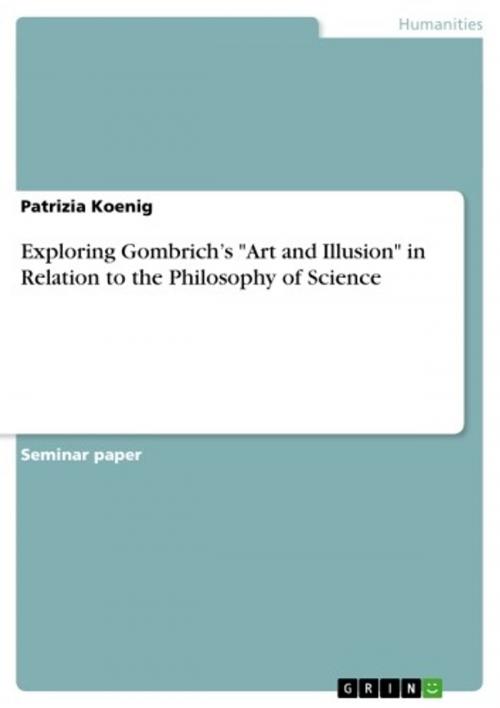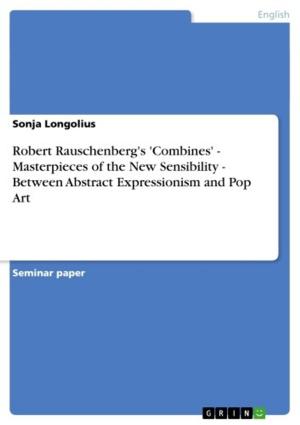Exploring Gombrich's 'Art and Illusion' in Relation to the Philosophy of Science
Nonfiction, Religion & Spirituality, Philosophy| Author: | Patrizia Koenig | ISBN: | 9783656429098 |
| Publisher: | GRIN Publishing | Publication: | May 23, 2013 |
| Imprint: | GRIN Publishing | Language: | English |
| Author: | Patrizia Koenig |
| ISBN: | 9783656429098 |
| Publisher: | GRIN Publishing |
| Publication: | May 23, 2013 |
| Imprint: | GRIN Publishing |
| Language: | English |
Seminar paper from the year 2012 in the subject Philosophy - Miscellaneous, grade: 9, Maastricht University, language: English, abstract: In the history of art, Ernst Gombrich's groundbreaking Art and Illusion: A Study in the Psychology of Pictorial Representation (1960) was influential in arguing against the traditional view of representation of reality in art as imitation. In the philosophy of science, notably Karl Popper and then Thomas Kuhn challenged the concept of progress as the cumulation of factual observations. This paper wants to approach the larger issue of progress within the framework of Art and Illusion by asking: in how far do concepts of progress as derived from the philosophy of science relate to the notion of arts? More specifically, how did Gombrich challenge the traditional idea of representation as imitation? In following, it will be shown that Gombrich's methodology and main concepts are greatly indebted to Popper's theory of falsification. In a second step, Thomas Kuhn's theory of scientific revolution, which opposes Popper's writings, will be outlined in relation to Gombrich and his ideas of perception and classification.
Seminar paper from the year 2012 in the subject Philosophy - Miscellaneous, grade: 9, Maastricht University, language: English, abstract: In the history of art, Ernst Gombrich's groundbreaking Art and Illusion: A Study in the Psychology of Pictorial Representation (1960) was influential in arguing against the traditional view of representation of reality in art as imitation. In the philosophy of science, notably Karl Popper and then Thomas Kuhn challenged the concept of progress as the cumulation of factual observations. This paper wants to approach the larger issue of progress within the framework of Art and Illusion by asking: in how far do concepts of progress as derived from the philosophy of science relate to the notion of arts? More specifically, how did Gombrich challenge the traditional idea of representation as imitation? In following, it will be shown that Gombrich's methodology and main concepts are greatly indebted to Popper's theory of falsification. In a second step, Thomas Kuhn's theory of scientific revolution, which opposes Popper's writings, will be outlined in relation to Gombrich and his ideas of perception and classification.















